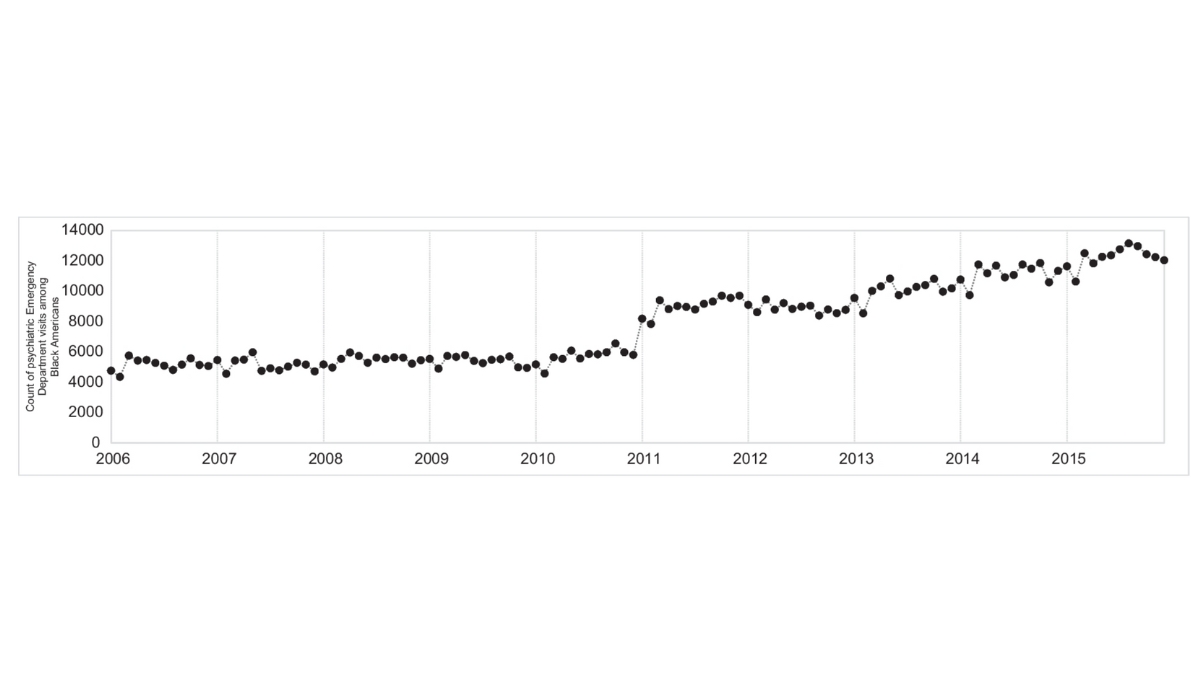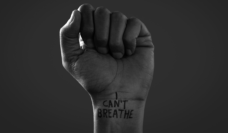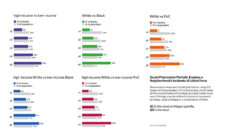New York City’s Stop, Question, and Frisk (SQF) policy, stemming from the Supreme Court’s Terry v. Ohio ruling in 1968, allows police to stop a suspect for reasonable suspicion of criminal activity. Since 2003, one in four stops in New York City has involved the use of force.
Police have stopped Black people (who represent half of all stops and 23% of the overall New York City population) eight times more often than White populations (who make up 10% of stops and 33% of the population). Black individuals, who often endure racial discrimination and stigmatization from these police stops, absorb trauma and fear from the stark SQF racial disparities.
Abhery Das and her team at the University of California at Irvine used police record data and medical records from New York City’s SQF database from 2006 to 2015 and examined over 930,000 outpatient psychiatric emergency department visits from the Statewide Emergency Department Database. They discovered a slow rise in psychiatric emergency department visits among Black residents in New York City.
The research team found a link between more frequent police stops and greater psychiatric emergency department visits among Black people in New York City, as shown in the graph above. This trend of annual increases coincides with the SQF policy throughout the Bloomberg and de Blasio administrations. A sharp increase in 2011 is consistent with the peak number of police stops (685,724) for the SQF policy that year.
The team found increased use of physical force (i.e. police forcing a suspect on the ground, against a wall) as the greatest threat to mental health, as well as bodily health. Encounters with police who follow SQF procedures have also affected the Black community more broadly, disheartening even those not directly involved in the policy itself.
In 2013, a federal court ruled the SQF policy unconstitutional after the class action lawsuit Floyd v. City of New York. Stops have decreased dramatically since their peak in 2011, with a promise for more reasonable policies. However, despite clear mandates in place, some police officers continue to engage in illegal SQF practices.
Databyte via Abhery Das and Tim A. Bruckner. New York City’s Stop, Question, and Frisk Policy and Psychiatric Emergencies among Black Americans. Journal of Urban Health, 2023.














